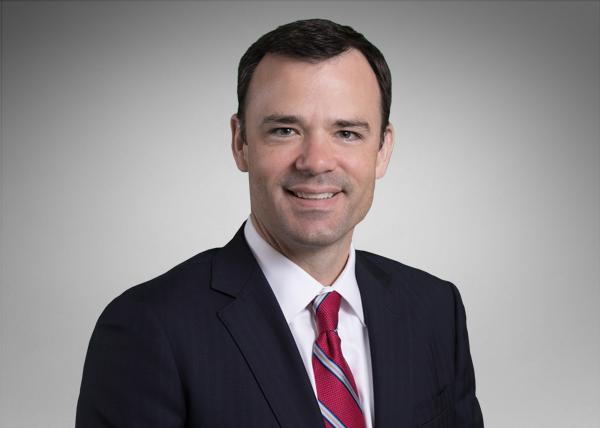With a growing chorus of support across the progressive landscape, the For the People Act of 2021 has emerged as a key legislative priority for congressional Democrats in the 117th Congress. Envisioned as a “transformational anti-corruption and clean elections reform package,” the bill would enact sweeping changes to federal election laws along with important changes to federal campaign finance, lobbying, and government ethics laws. Taken together, these changes would have significant implications for private parties engaged in all manner of political activity.
After House Democrats relied on their slim majority to pass the For the People Act, the bill now faces more uncertain prospects in the evenly divided Senate. Nonetheless, Democratic leaders are sure to continue to press aggressively to move the bill through the upper chamber. Likewise, even absent passage of the entire package, Democrats may look for opportunities to pass key elements of the broader bill on a bipartisan basis.
To assist clients in understanding how the For the People Act would affect their existing activity and compliance obligations, this is the second of several alerts that will provide insights into key elements of the bill and what they mean for our clients. This alert addresses the bill’s proposed changes to the Lobbying Disclosure Act (“LDA”), the main federal law regulating lobbyists, and to the Foreign Agents Registration Act (“FARA”), a statute that requires the “agent” of a foreign “principal” to register and disclose certain political, lobbying and public relations activities.
* * *
The LDA and FARA are the two key federal laws forcing disclosure of efforts to influence the federal government and public opinion, but each law has also been criticized for its shortcomings. Individuals who avoid direct contact with a federal official, or who do not spend 20% of their time on “lobbying activities” for a particular client, can avoid triggering the registration requirements of the LDA, which some have criticized as permitting so-called “shadow lobbyists.” FARA is a broad law written for pre-World War II circumstances, and then long neglected, leading to difficult and sometimes confusing applications of the statute’s vague language. The For the People Act attempts to resolve some of these issues.
Lobbying Disclosure Act Revisions
The Act’s revisions to the LDA would expand who must register as a lobbyist by changing the threshold for registration and including behind-the-scenes lobbying activity.
The Act would reduce the amount of time a person can engage in lobbying activity without registering. The LDA currently defines a lobbyist as someone who (i) has two or more “lobbying contacts” on behalf of a client at any time and (ii) spends 20% of their time for that client in any three month period engaged in those contacts and work in support of lobbying contacts, which together are called “lobbying activities.” The Act would reduce the registration threshold for time spent on lobbying activities from 20% to 10%. This change alone would significantly expand who might be considered a lobbyist — just two weeks of intense lobbying activity across a three month period could trigger registration, as could less than one hour of lobbying activity a day across those months.
The Act also attempts to regulate what is sometimes called “shadow lobbying.” While conflict of interest laws and executive orders address some of this behind-the-scenes activity when it is performed by recent government employees, this law would expand coverage to include individuals who “counsel” on lobbying issues, even if they do not make a direct contact with a federal official. With the Act’s revisions, an individual who (i) has the authority to “direct or substantially influence” a lobbying contact by another individual, (ii) is paid to counsel that second individual on their lobbying contacts, and (iii) knows that those lobbying contacts were made, would be considered to have engaged in the contacts themselves. The law also considers such counseling to be “lobbying activity” that would count towards the registration threshold percentages discussed above.
Note that this expansion of the definition of “lobbying activities” also has an impact on some individuals covered by the Biden Administration’s executive order on ethics. Appointees covered by the order may not act as registered lobbyists on executive branch issues for two years after leaving the Administration or until the end of the Administration, whichever is later. Because the For the People Act would extend lobbying registration to individuals who provide “counseling,” appointees covered by the pledge would have to limit the duration or nature of their counseling activities to avoid triggering registration in violation of the pledge. The Act in combination with the ethics pledge would also prohibit senior and very senior appointees covered by the order from engaging in any counseling or holding themselves out as available for such counseling for one year from the end of their appointment.
The Act also requires that registered lobbyists identify themselves as such when they make a lobbying contact, identify the client on whose behalf they are lobbying, and indicate whether their client is a foreign entity. This seemingly subtle amendment of a relatively obscure identification requirement under the current law will make it difficult to have general lobbying discussions with covered officials without mentioning the client interests behind the effort.
The law also would prohibit paid lobbying activity for a government that the President has determined to have engaged in gross violations of human rights.
FARA Revisions
The For the People Act would make some key changes to FARA, including expanding the reach of activities that can trigger registration; clarifying the placement of disclaimers on online materials; requiring large “online platforms” to enforce this disclaimer rule and to track efforts by foreign agents to buy political ads; adding a gift disclosure provision to FARA’s reporting obligations; giving the Department of Justice more enforcement tools; and requiring studies of future changes in the law.
Expanded Reach
FARA’s registration requirements apply to activities “within the United States.” This language seems clear, but in recent years the Department of Justice has tried to expand its meaning to capture even some activity outside the United States. A key change introduced in the Act attempts to resolve this point in favor of DOJ for one of the four main FARA registration triggers: engaging in “political activities” for or in the interests of a foreign principal. Currently, this registration trigger only applies to someone who engages in these activities “within the United States.” The Act would change that language to read “within the United States (whether within or outside of the United States).” While not a model of clarity, it appears this language is meant to expand the reach of the law to agents who act outside the United States to influence policy within the United States. This would be a very significant change in FARA. At the same time, it would also be significant that this new language would only apply to the “political activities” trigger and would not apply to the other triggers for registration, suggesting more clearly that those other types of activities outside the United States do not require FARA registration, including most notably, serving as a “political consultant,” which is very broadly defined to include, essentially, advising anyone on the policies of the United States.
The bill similarly changes the requirement that materials distributed by foreign agents on behalf of foreign principals carry a disclosure to that effect. The requirement currently applies to “any person within the United States.” The Act strikes the language “within the United States,” clarifying that this disclosure requirement applies to persons acting outside the country as well, which would also be a consequential change in the law.
Online Activity
The Act would change FARA’s treatment of online activity, including requirements for a newly defined entity called an “online platform.” It clarifies that a registered agent of a foreign principal who posts materials for the foreign principal on an “online platform” would have to include the required foreign agent disclosure directly on the online material, rather than through a link or other external reference. In some instances, the law would require an abbreviated statement that the materials are distributed by a foreign agent on behalf of the identified foreign principal. An “online platform” is defined as a public website, web app, or digital app, explicitly including a social network, ad network, or search engine.
The Act would place obligations on online platforms to assist in enforcing the statute. If the Attorney General determines that a foreign agent failed to include the proper disclosure, the online platform must remove the material and warn recipients of the material that it was disseminated by a foreign agent. The Act would also require any online platform that had 50 million unique monthly U.S. visitors in a majority of the prior 12 months to ensure that these disclosures remain with the informational materials, including when the material is “shared” on social media.
Additionally, an online platform that sells political ads and has 50 million unique monthly U.S. visitors in a majority of the prior 12 months would have to maintain information about efforts by foreign agents to purchase political ads for a foreign principal. The record must include the name of the foreign agent and of the agent’s foreign principal.
Gift Disclosures
The Act would require those registered under FARA to report if they are aware of a foreign principal providing a federal or state officeholder with anything of value, including gifts, salaries, favorable regulatory treatment, or other economic or financial benefit. This obligation would also apply to current registrants who are aware of such gifts or payments occurring in the past, as well as current registrants aware of a gift in the then-current reporting period. Note that other federal laws and rules regulating gifts from foreign sources, gifts from lobbyists, outside income, and other limitations prohibit many benefits from foreign principals in the first place. This change could put some who are registered under FARA in the uncomfortable position of disclosing potentially problematic activity by their clients or else face legal exposure themselves.
Enforcement Enhancements and Future Changes
The bill would also continue the recent trend toward increased FARA enforcement by establishing a dedicated FARA enforcement group within the Department of Justice’s counterespionage unit and appropriating $10 million each fiscal year for that group. It also would add civil fines for late, unfiled, or incomplete FARA filings, adding to the criminal penalties already included in FARA. The bill would prohibit the foreign principal from paying the civil fines.
One change not found in the Act is elimination of the “LDA exemption” to FARA registration. This exemption generally permits agents of private sector foreign entities to register and disclose their activities under the LDA, which is generally less burdensome, rather than FARA. This exception has been a target of standalone FARA reform bills, like legislation introduced by Sen. Grassley in the prior Congress. The For the People Act would, however, only require the GAO to conduct a study of the impact of the LDA exemption and whether revisions to FARA or LDA might reduce the risk of undisclosed foreign influence. The Act would also require the Department of Justice to study challenges to enforcement of FARA more generally and report to Congress.
Lobbying and FARA Database
The Act would require the Department of Justice to create and maintain a database allowing the public to obtain copies of lobbying and FARA registration statements, maintained in a searchable electronic format. It also would require enhancements to the FARA filing system to make it easier to search and use the data in the filings.
If you have any questions concerning the material discussed in this client alert, please contact the following members of our Election and Political Law practice.
Back
Back












